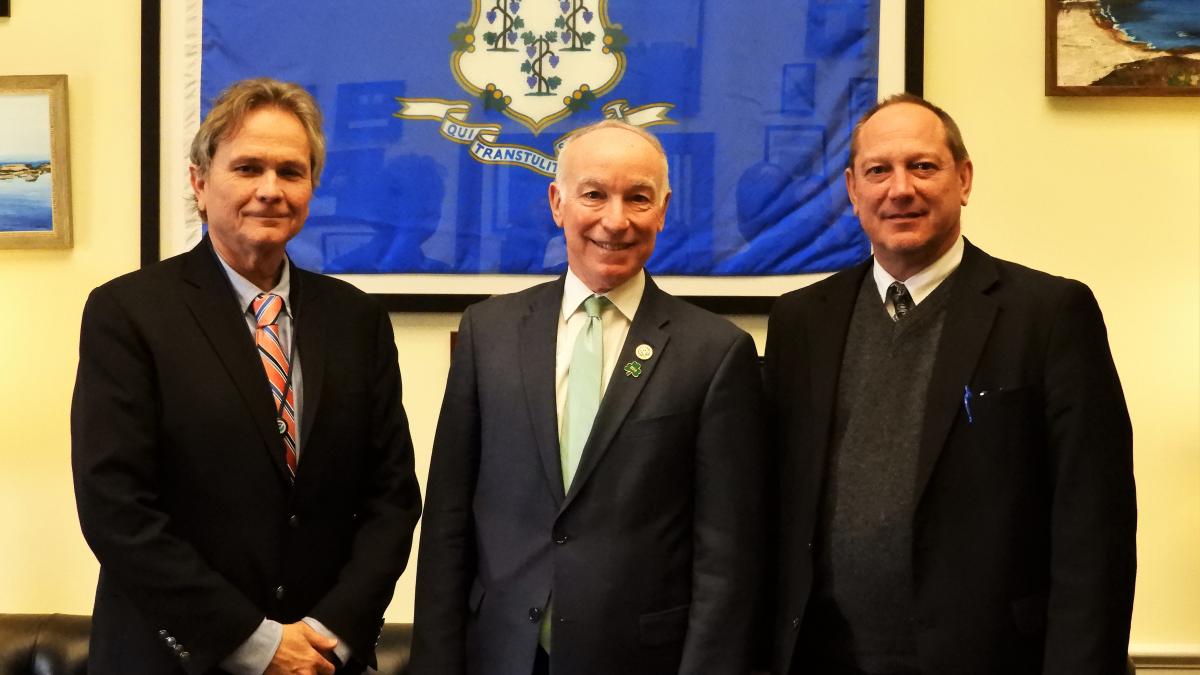Courtney Meets with NOAA to Request Better Data That Will Benefit Connecticut’s Commercial Fishermen

(Washington, DC) —Yesterday, Congressman Joe Courtney (CT-02) met with officials from the national oceanic and atmospheric administration (NOAA) to request that they improve their data collection methods on Atlantic fish stocks. Courtney met with the new Fisheries Administrator for NOAA, Chris Oliver, and Cisco Werner, the Chief Scientist of NOAA Fisheries to discuss how NOAA can improve data collection efforts that are used when establishing fishing quotas for the northeast region.
"I have joined with Connecticut fishermen in repeatedly urging federal agencies to find a balanced approach for fisheries management that reflects updated data and provides a level playing field for fishermen in our state," said Courtney. "As part of those ongoing efforts, I met yesterday with officials from NOAA to discuss how we can improve data collection efforts that are used when establishing fishing quotas for the northeast region. I encouraged NOAA to collaborate with industry when possible to collect data on certain fish stocks such as summer flounder and black seabass. Closer to shore, collaborative data collection efforts between NOAA and industry are already working well. Better data will enable us to set quotas that are truly fair to all fishermen regardless of what state or region they are from. I will continue to work on a bipartisan basis to preserve our region's historic fishing industry and provide a flexible approach to managing our seas."
Over the last twenty years, changing water temperatures, out-of-date fishing regulations, and antiquated data collection mechanisms have made it difficult for Connecticut fishermen to preserve their businesses and their way of life. Warming ocean temperatures often mean that fish stocks that had once been more prevalent in southern and mid-Atlantic waters are now migrating and expanding further north in search of cooler waters. Often times, following behind the fish are the southern and Mid-Atlantic fishermen who are now operating off the coast of New England using quotas based on decades-old traditional fishing ground data. This fact that southern fishermen have higher quotas for these fish put Connecticut fishermen at a major competitive disadvantage.